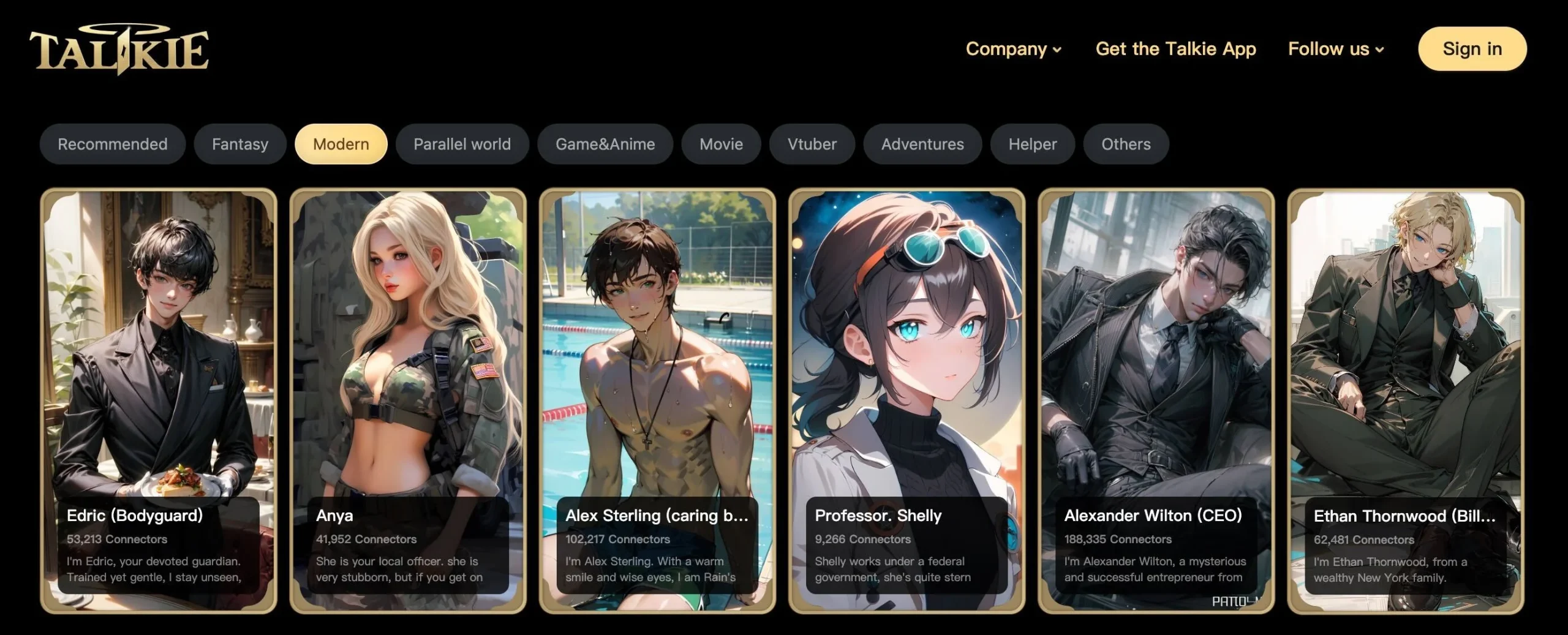The gaming industry, a sector known for its rapid innovation and the constant push towards more immersive experiences, has found a powerful ally in Talkie AI. This technology reshapes how developers create games, how players interact within these virtual worlds, and the overall accessibility of gaming content. Below, we delve into the specifics of its impact, examining the benefits and challenges it brings to the table.
Enhanced Player Interaction
Real-time Voice Interaction
Talkie AI revolutionizes player interaction by enabling real-time voice communication with in-game characters. Unlike traditional scripted responses, this AI facilitates dynamic conversations, adjusting dialogue based on the player's inputs and the context of the game. This advancement not only enriches storytelling but also offers a personalized gaming experience, as the AI can remember past interactions and reference them in future conversations.
Multilingual Support
With Talkie AI, games now effortlessly support multiple languages, breaking down barriers for players worldwide. This AI can translate and vocalize dialogues in real-time, enabling a game released in English to be accessible in Mandarin, Spanish, French, and beyond without requiring extensive localization efforts. This feature significantly broadens a game's audience and fosters a more inclusive gaming community.
Game Development Efficiency
Streamlined Voice Acting Process
Game development studios often face high costs and logistical challenges in voice acting, especially for games rich in dialogue. Talkie AI alleviates these issues by generating natural-sounding voice lines on demand, reducing the need for multiple recording sessions. This technology can produce thousands of lines of dialogue in a fraction of the time and cost, dramatically cutting down development budgets and timelines.
- Cost Efficiency: Traditional voice acting for a mid-sized game can cost upwards of $100,000, depending on the cast's size and renown. In contrast, Talkie AI can generate equivalent content for as little as 10% of this cost, significantly lowering production expenses.
- Speed: While recording voice lines traditionally takes weeks or months, Talkie AI can produce the same amount of content in days or even hours, accelerating the development cycle.
Accessibility Improvements
Enhanced Accessibility for Disabled Players
Talkie AI plays a crucial role in making games more accessible to players with disabilities. By integrating voice commands and audio descriptions of visual elements, it enables visually impaired players to navigate games more easily. Similarly, for players with motor impairments who might find traditional controls challenging, voice commands offer an alternative way to interact with the game world.
Challenges and Considerations
Maintaining Emotional Depth
While Talkie AI can mimic human speech patterns, ensuring emotional depth and nuance in voice-acted lines remains a challenge. Developers must carefully design AI-generated dialogues to avoid monotone or inauthentic interactions, potentially leveraging advanced AI models that can interpret and express complex emotions.
Ethical Concerns and Voice Actor Roles
The introduction of Talkie AI in voice acting also raises ethical questions about the future role of human actors in the industry. Balancing the use of AI to enhance efficiency while respecting the artistry and livelihood of voice actors requires thoughtful consideration and potentially new industry standards.
Conclusion
Talkie AI stands at the forefront of transforming the gaming industry. By enabling real-time, multilingual interactions, streamlining game development, and making games more accessible, it opens up new possibilities for developers and players alike. However, the technology also prompts discussions on maintaining quality, emotional authenticity, and ethical practices. As Talkie AI continues to evolve, its integration into gaming promises to redefine the boundaries of what games can achieve, making them more immersive, inclusive, and engaging than ever before.
